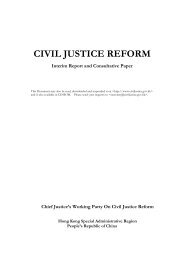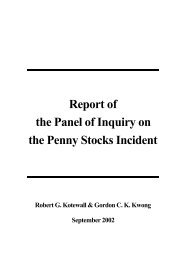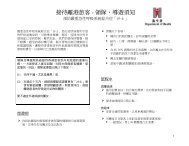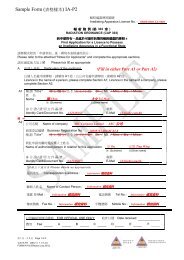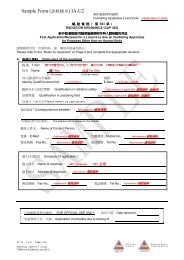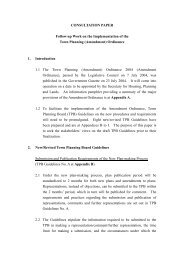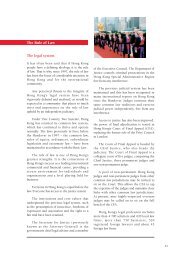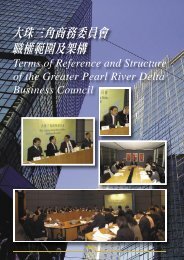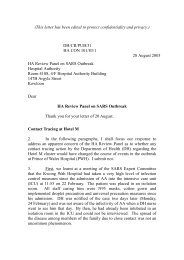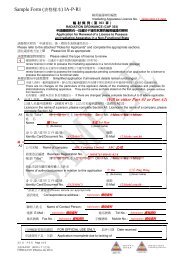INLAND REVENUE BOARD OF REVIEW DECISIONS Case No. D41 ...
INLAND REVENUE BOARD OF REVIEW DECISIONS Case No. D41 ...
INLAND REVENUE BOARD OF REVIEW DECISIONS Case No. D41 ...
Create successful ePaper yourself
Turn your PDF publications into a flip-book with our unique Google optimized e-Paper software.
<strong>INLAND</strong> <strong>REVENUE</strong> <strong>BOARD</strong> <strong>OF</strong> <strong>REVIEW</strong> <strong>DECISIONS</strong><br />
(b) A draft case stated was prepared by the Chairman and submitted to the parties<br />
for comment and agreement. The format and content used was based on that used in the<br />
Chinachem case.<br />
(c) Neither party was in agreement with the format or content of the draft case<br />
stated. Counsel for the Taxpayer produced a new and different draft which was rejected by<br />
Counsel for the Commissioner who then prepared a new and again different draft. Counsel<br />
met and were in correspondence for some considerable length of time in an endeavour to<br />
reach agreement and ultimately were able to do so in a format similar to that originally<br />
proposed by the Chairman of the Board (that is, the Chinachem format) but certain matters<br />
could not be agreed.<br />
(d) Counsel for the parties were unable to resolve: (i) whether or not the transcript<br />
of the proceedings in whole or in part should be incorporated into the case stated; (ii) to what<br />
extent the Board of Review should make separate or additional findings of fact; (iii) whether<br />
statements as to the credibility of the witnesses should be included; (iv) whether the<br />
acceptance by the Board of Review of the documentary evidence before it should be<br />
repeated; (v) whether the Commissioner’s determination should form part of the case stated;<br />
and (vi) whether the application for the case stated should be included.<br />
(e) It was agreed by both Counsel that: (i) it was not appropriate for separate<br />
findings of fact to be prepared; (ii) that the decision of the Board should form part of the case<br />
stated; and (iii) that the facts found should be in the form of the decision of the Board.<br />
(f) It was further agreed by Counsel and confirmed by the Chairman that the Board<br />
of Review had accepted the evidence before it in toto by incorporating into the decision the<br />
following statement:<br />
‘ The facts of the case stated are found in the determination of the Commissioner,<br />
in evidence given before the Board of Review by Mr A, in two Affidavits one<br />
by Mr B and the other by Mr C and in certain Exhibits produced by the witness<br />
who appeared before the Board of Review.’<br />
(g) Section 69 of the Inland Revenue Ordinance provides that the decision of the<br />
Board of Review shall be final save and except for appeal by way of case stated on a<br />
question of law. It has been held that the case stated procedure is a useful and effective<br />
method of applying to the High Court for legal rulings on precise questions of law but it is<br />
not a practical way to rehear a case on appeal.<br />
(h) When making application for a case stated under section 69, it is necessary to<br />
particularize the question of law on which the opinion of the High Court is required. The<br />
question ‘whether the decision was correct in law’ is insufficiently precise because it does<br />
not state the point of law in issue and makes it impossible for a case stated to be drafted. It is<br />
necessary to particularize the point or points of law on which it is alleged the Board has<br />
erred.



